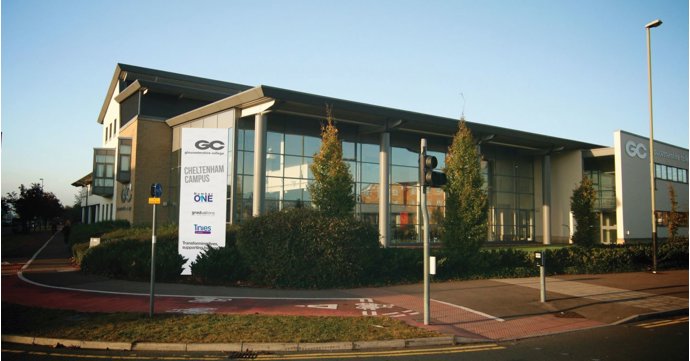As the dust starts to settle on the Autumn Budget announcement, the impact of the chancellor's record tax hike becomes clearer.
SoGlos caught up with regional head of real estate, private client partner and chartered tax adviser, Nick Latimer, from Crowe UK to do a deep dive into the biggest changes to taxation – and what effect they'll have on businesses and individuals.
Were there any surprises for you in the Autumn Statement?
The main surprise is what the chancellor didn’t do. There had been speculation of a much larger level of wealth taxes – such as Capital Gains Tax, Inheritance Tax or a 'mansion tax' based on a percentage of property values – she ended up leaving CGT and IHT alone.
The 'mansion tax', though painful for some, could also have been more significant.
I hope that the chancellor has got enough headroom not to have to come back again, but I do wonder if there is going to be the growth that she's hoping for.
What's the general feeling around the budget from your clients?
The general view has actually been quite positive – and I think it's positive because everyone thought it could have been worse, to some extent.
But there has been a fair amount of negativity, too. We did some polling at our budget seminar about how people are feeling about their businesses and the wider economy – and most people in the room felt like things were really difficult.
The way the chancellor has structured it all, she's pushed a lot of these big, painful decisions down the road. I think if she had implemented the pension change immediately, for example, a lot of businesses would have felt like that's just more tax on them and there would have been a much bigger uproar. So I think there's been a general feeling of 'we'll worry about that later'.
I wouldn't be surprised if there are changes to some of these measures between now and when they're due to be implemented, to make them either tougher, or less tough, depending on how the economy grows.
Can you summarise the biggest changes to taxation and when they'll come into play?
The big changes are some way off still, which I think was a part of the chancellor's strategy.
The proposed timeline is:
- April 2026 – two per cent income tax increase on dividend income for basic and higher rate taxpayers to 10.75 per cent and 35.75 per cent respectively. No change to the 39.35 per cent top rate. This will impact those with investments and also owner-managed businesses (OMBs), so in many cases it is more efficient to remunerate through payroll now.
- April 2027 – two per cent income tax increase on savings and rental income, to 22 per cent, 42 per cent and 47 per cent respectively.
- April 2028 – Introduction of the new 'mansion tax'.
- April 2029 – Salary sacrifice pension rules come into play on contributions greater than £2,000.
One of the biggest tax raisers is the extended freeze on personal allowances – what effect will this have?
While the manifesto pledge hasn't been broken per se, the chancellor has really spread the burden over the wider public.
An additional 900,000 to 1,000,000 people will pay higher rate tax and nearly 800,000 will be paying income tax for the first time. With high inflation, it hits somebody who hasn't been a higher rate taxpayer quite heavily.
For example, someone earning £50,270 who spends what they earn, they currently don't pay higher rate tax, but by 2030/31, if inflation is at four per cent year-on-year, it would push that earning figure to £61,160, increasing their tax bill on £10,900 of income from 20 per cent to 40 per cent – an additional £2,200 of tax per year when their costs have not reduced.
And there are thresholds that the chancellor didn't mention which still really catch people out. Things like starting to lose child benefit over £60,000 and your personal allowance over £100,000. There's a lot of stealthy fiscal drag going on.
What do the changes to the cash ISA allowance mean for savers?
From April 2027, people under 65 will have to put £8,000 of their £20,000 ISA allowance into stocks and shares rather than cash – so if you're risk averse, you are restricted to £12,000 in cash.
Ultimately, cash is safe and money in a cash ISA is protected by the financial services compensation scheme. With interest on cash recently, it's not been the worst type of investment.
But the government wants to boost the stock market and have more people investing in equities, although a Stocks and Shares ISA can invest globally so it won't necessarily help British businesses.
It's good they haven't reduced the ISA limit, which is quite generous.
What impact do you anticipate the two per cent increase on dividend, property and savings income will have?
It will clearly hit savers – and in the case of the wealthy, push more into using corporate structures to shelter their income tax charges. Corporates pay tax at 25 per cent, versus personal tax at up to 47 per cent from April 2027. For owner-managed businesses, there will be more consideration of payroll remuneration, rather than a dividend strategy.
With the tax changes on property, including the new 'mansion tax', it begs the question of what this will do to the property market. Is it going to reduce prices ultimately? Will more people want to consider a company for property investment?
It might also mean that there are fewer transactions at the top end of the market, which tends to trickle down to the less expensive homes – and unless interest rates come down and young people are supported with a new home, I think it's going to be hard for people to buy property and property developers to make money on housebuilding, particularly with planning challenges and biodiversity net gain – there is much to do before Britain will hit its target of 1.5 million new homes by the end of this parliament.
It's also not clear how the government will assess how homes will be valued for the 'mansion tax' or how it's going to be collected. And we haven't had the details yet of what the options will be for people who haven't got the liquidity to pay it.
What impact do you anticipate the changes to salary sacrifice pension contributions having on individuals and businesses?
This will be a real cost to business as they are forced into making 15 per cent employer pension contributions (reduced to 11.25 per cent with corporation tax relief) – and will be a further hit on businesses and employment.
Middle and higher earning employees will also have to pay more NICs, so reduce their take home pay, but an earner on £40,000 with five per cent going into their pension won't be impacted because of the £2,000 allowance.
Ultimately, no one really wants to discourage pension saving. We want people to save for pensions, so disincentivising that is not really the sort of thing that you'd want the government to be doing – but there is a perception that it's unfair that you can save National Insurance on salary sacrifice – and it could be a stepping stone to restrictions on pension tax relief in the future, so I think that's why she's done what she's done She didn’t make the same change for people sacrificing salary to buy electric vehicles.
I was also surprised that employer contributions made outside salary sacrifice were not mentioned – I would expect that to change between now and when the legislation is enacted.
With no U-turn on the so-called ‘family farm tax’, what can be done before April 2026 to mitigate the financial impact of this?
Having been pleasantly surprised about there being no further budget changes for those considering succession planning, the October 2024 changes as previously announced remain – which is clearly upsetting for many family businesses and farmers around the country.
There were no announcements to increase the £1 million allowance, although one small change was made to allow the relief to become transferable between spouses. This will not have a significant impact on those affected. The focus now should be any action needed before Monday 6 April 2026 to put a trust in place to provide asset protection on businesses worth more than £1 million without an up-front tax charge.
For example, if a farm owner doesn't want to give his whole farm to his kids yet, perhaps because they're too young, by putting the farmland into trust before April 2026, there's currently no tax on the way in.
From Monday 6 April 2026, a transfer into trust above £1 million could result in inheritance tax at up to 10 per cent. It takes time to review and assess the viability of trust planning, so time is running out.
What can people now facing higher taxes do to mitigate the impact on their finances?
Speak to an accountant and financial adviser about how best to arrange your affairs – although tax avoidance can sound like two dirty words these days, everyone has a right to make legal choices that benefit their take home position – for example, by sharing assets or income within the family, or investing more tax efficiently.
How can Crowe help?
Crowe has a large national team of tax advisers, with over 20 based in Cheltenham and 50 across our midlands and south west region.
As a local accountant with national and international reach – and with 1,600 people across the country offering a breadth of service lines beyond tax and general accounts, such as financial planning, valuation services and corporate finance amongst others – we are well placed to provide the best possible advice.
For more information about what the budget announcements mean for you or your organisation, Crowe is hosting a free webinar on Wednesday 3 December 2025 at 2pm to provide an in-depth review of the chancellor's plans.
To register for a place, visit crowe.com.
Or to contact Nick Latimer, email nick.latimer@crowe.co.uk or call 01242 234421.





















